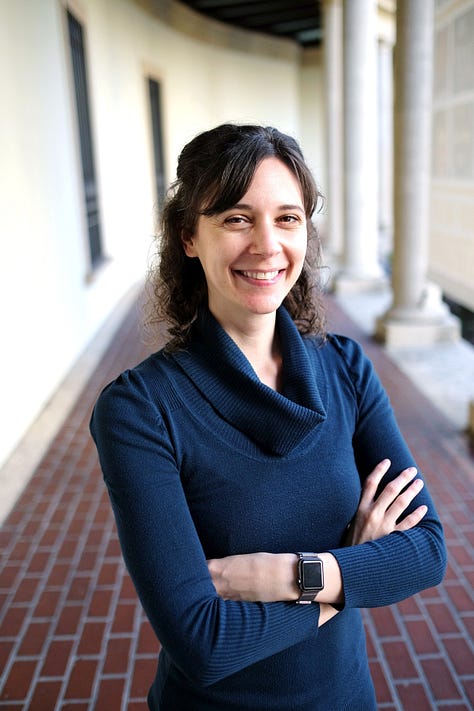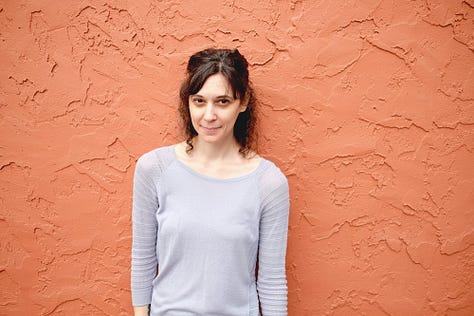Inside the Mind is a compelling series featuring curated insights from top experts in personal finance, mental health, professional and personal growth, and financial wellness. Are you an expert with valuable insights to share? Feel free to reach out and message me.
Have you ever wanted the chance to ask a Certified Educator in Personal Finance (CEPF) thought-provoking questions that could enhance your financial well-being? A CEPF holds a prestigious credential, awarded to individuals who have demonstrated exceptional expertise in teaching and advising on personal finance topics. Gaining access to their knowledge is a unique opportunity, short of reading their published work—which, by the way, we’ll also touch on.
In this exclusive feature, I posed nine insightful questions to Dana Miranda, a highly regarded CEPF, to uncover strategies and perspectives that could benefit you, your financial journey, or someone you care about. Let’s dive into Dana Miranda’s powerful and inspiring words.



1. What would you say is the first step for someone looking to develop a healthy, positive relationship with their finances?
Learn to trust yourself. The most insidious feature of our toxic cultural relationship with money is that our financial education and media teaches us we don’t know how to use money without imposing restrictions. Reject that message, and trust yourself to earn, use and borrow money in whatever way makes sense for your life.
2. Are there common money beliefs that you’ve found to be particularly limiting, and how can people work to replace them with healthier beliefs?
The most basic limiting belief around money is a scarcity mindset — the belief that money is limited. That leads us to not only restrict ourselves but also to avoid sharing resources with others out of fear that there’s not enough to go around. You can address this common belief by investigating your own relationship with money, identifying your limiting beliefs and experimenting with new habits to shake you out of scarcity thinking. A gratitude practice, intentional generosity, money mapping and self-advocacy can help you break out of a scarcity mindset and move toward abundance.
3. How do you help people find balance between saving for the future and living in the present, especially for those who feel stretched financially?
To start, a money map can help you see your financial situation clearly, so you understand exactly what you’re working with and where you want to be. When money is tight, it might show you that you actually don’t have the resources to live in the present and save for the future as much as you want. You can use your money map to understand how to set priorities and use your money to create the life you want, even if it’s not optimized according to the financial advice you’ve gotten. You might spend less in the present, deprioritize saving for the future, eliminate some big spending plans, or use credit and loans to expand your resources and meet more goals.
4. What do you think are the biggest “money mistakes” people unknowingly make that keep them from long-term financial success?
What counts as a financial “mistake” depends on your individual circumstances, but the most universal misstep I see is trying to follow any one expert’s advice to a T. No one knows your circumstances, so no advice will fit your life perfectly. Trying to follow prescriptive financial advice will likely cause unnecessary challenges or restrictions. Instead of looking to experts for what to do, lean on financial educators to learn how financial products and systems work, so you can make informed decisions in line with your needs and goals.
5. How does our emotional state impact spending habits, and what are practical ways people can become more mindful about emotional spending?
“Emotional spending” can be positive or negative. On one hand, letting your guard down and making decisions from your gut rather than your head can help you avoid restriction that doesn’t serve you. On the other hand, emotional spending might be an attempt to treat psychological pain or anxiety with consumption from companies willing to take advantage of your state to make money. You can practice more conscious spending by tapping into what your body has to tell you about what you’re feeling and what you need to be well. Somatic practices like yoga, breathing exercises and meditation can help you learn to listen to your body.
6. How can couples and families approach financial planning in a way that strengthens their relationship rather than creating stress?
Ongoing communication and honesty are key. One Healthy Rich contributor recommended a weekly family meeting, which helps her family check in and stay on the same page about their life plans and goals and how they’re using their money. Don’t think money can be settled in a single conversation. Once you set goals and create processes, you have to continue to check in on them to make sure they still fit your needs.
7. What are some small, consistent habits that, in your experience, have the power to transform someone’s financial wellness over time?
Any mindfulness practice that improves your overall wellness is beneficial to your financial wellness, too. Meditation, prayer, yoga, walking or breathing exercises that clear your head and help you tap into your inner voice will help you understand what you want to achieve next and how money can help you do it. Mindfulness also helps you spend consciously, so you won’t rely on restrictive budgets or rules that aren’t aligned with your needs. Increasing mindfulness can help you quiet the noise of financial advice in our culture and listen to what you want to do with your money, so financial decisions are less stressful.
8. What role does financial literacy play in helping people achieve life satisfaction, and what resources do you recommend for those who want to increase their financial knowledge?
As much as it’s exalted in our culture, financial literacy hasn’t actually been shown to improve financial outcomes or improve quality of life. Financial education can help you better understand how financial products and systems work (if it focuses on that information; often fin ed is overly focused on teaching budgeting and other prescriptive rules for money management). But your outcomes and quality of life are much more dependent on whether you have equitable access to those financial products and systems — e.g. can you get hired for a well-paying job, access a loan at an affordable interest rate, open a bank account with tellers who speak your language, get a higher education, have steady access to a retirement account, etc.? Both education and access are necessary to improve financial outcomes and quality of life.
9. What life lesson has working in personal finance taught you, and how has it changed the way you approach your own relationship with money?
Working in personal finance gave me a masterclass in the workings of our financial products and systems, so I could understand the consequences of various financial decisions and make informed moves for myself without fear. It’s also shown me how much our cultural relationship with money relies on an individualistic approach that shames and blames people for their financial circumstances without fair consideration for the greater forces affecting them. Financial media and education rely on one-size-fits-all advice that ignores the nuances of people’s real lives. Understanding that has made me feel a lot less guilt about making financial decisions that don’t align with conventional advice, and that means less stress overall in my relationship with money.
Dana is the creator of Healthy Rich, a newsletter about how capitalism impacts the ways we think, teach, and talk about money; she’s the expert behind the nationally-syndicated “Dear Penny” financial advice column; and she’s a contributor to Business Insider, Fortune, Salon, and more.
You can discover even more of Dana's valuable insights in her new book, You Don't Need a Budget (I have already pre-ordered the audiobook), as well as on her website.
Your words will continue to inspire and hold immense value. Thank you, Dana, for sharing your wisdom.






I've heard of her book - the title is very much in line with my personal approach to my own finances. I have a very minimalist approach, because tracking every dollar and reconciling it to your prescribed allocation is tedious and off-putting for most. And I love messing with money, so how much does it suck for those who don't, right?
Thank you so much for having me! I appreciate the opportunity to dive deep into these ideas.